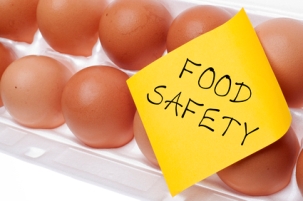 When food is exported from one country to another, it is monitored by Food Sentry, a team of food analysts who strive to protect American consumers from pathogen-compromised foods. Unfortunately, for 2013, the U.S. was one of the top 10 countries with the most food violations. The bottom five included Vietnam, Brazil, Dominican Republic, Turkey, and Spain.
When food is exported from one country to another, it is monitored by Food Sentry, a team of food analysts who strive to protect American consumers from pathogen-compromised foods. Unfortunately, for 2013, the U.S. was one of the top 10 countries with the most food violations. The bottom five included Vietnam, Brazil, Dominican Republic, Turkey, and Spain.
The focus was on raw or minimally processed foods, which included fruits, vegetables, seafood, dairy, meats, spices, nuts, grains, and seeds. The problems ranged from illegal pesticide contamination and pathogen contamination to unsanitary conditions and excessive filth.
The U.S. imports foods from all of the companies highlighted in Food Sentry’s report, which pointed out that no country inspects more than 50 percent of the food it imports. Most inspect far less than half – in fact, the U.S. inspects less than 2 percent of its imported food.
Importers place so much on securing suppliers and managing freight, customs, and duties details that the all-important inspection element is overlooked completely. What other issues might importers be missing?
This is precisely where an international trade manager’s value becomes apparent. An experienced, reputable trade manager knows how to dot the Is and cross the Ts of an import-export transaction. What is it worth to you to have the peace of mind that comes with letting the experts handle the global trade complexities.
Contact Walker World Trade to discuss your import needs. It feels good to let the experts handle things.

